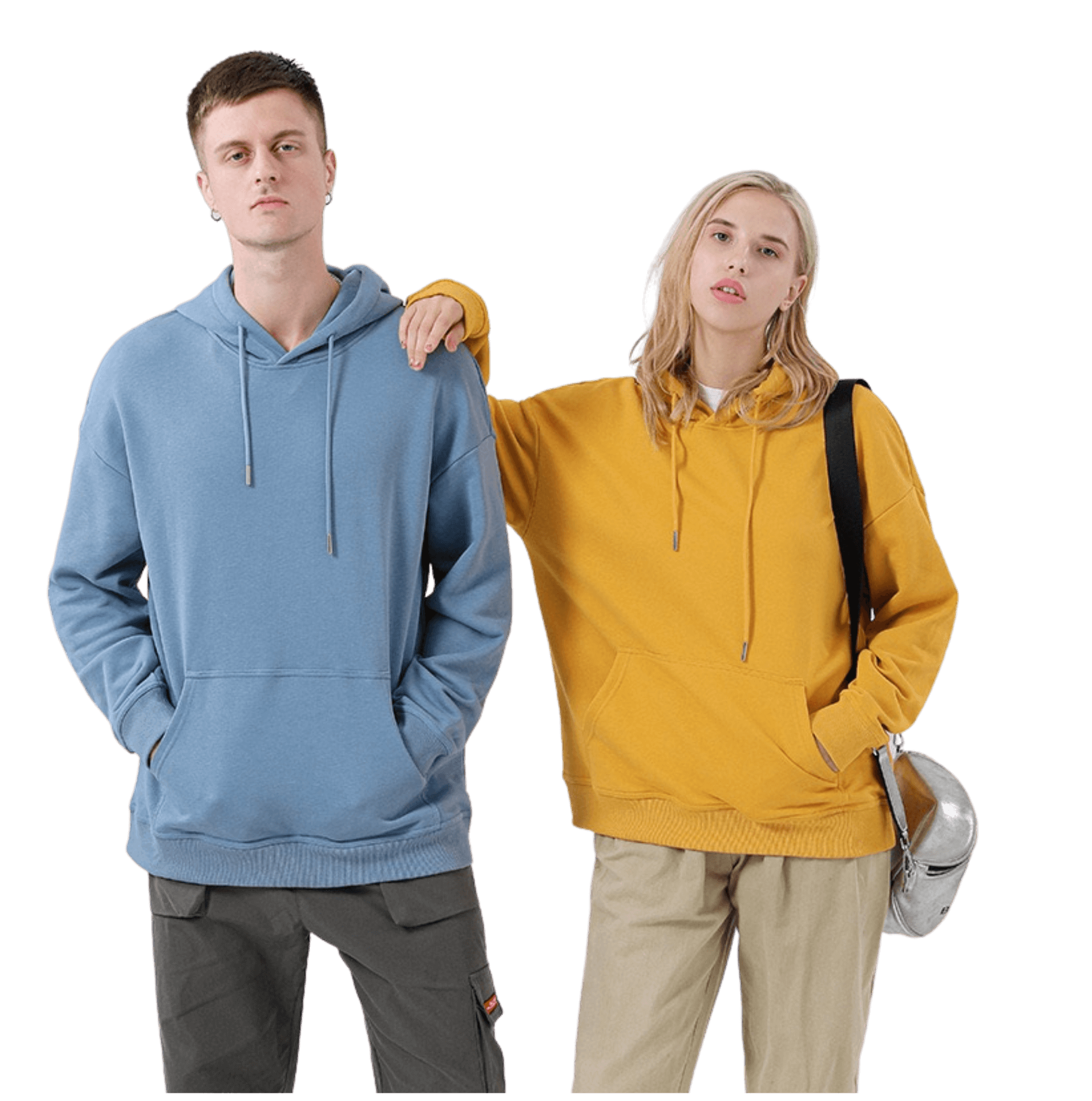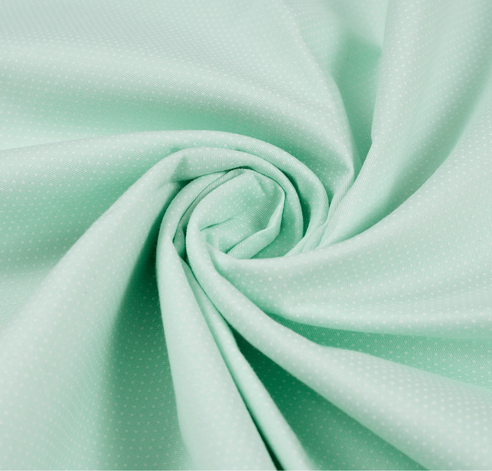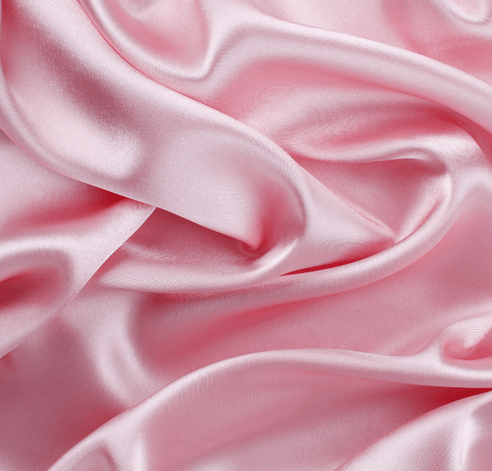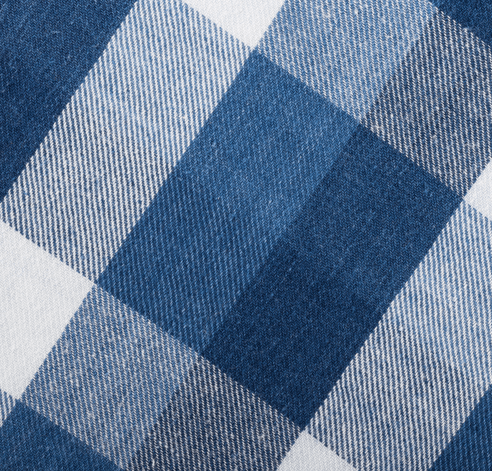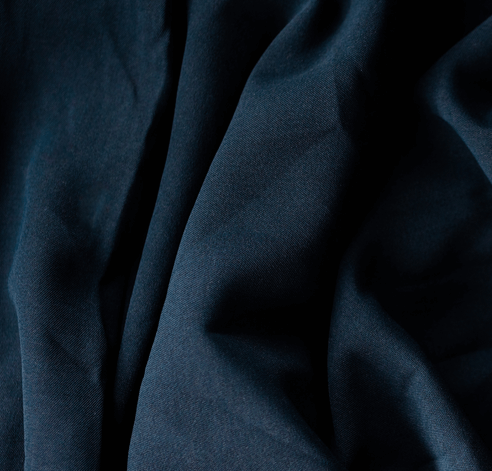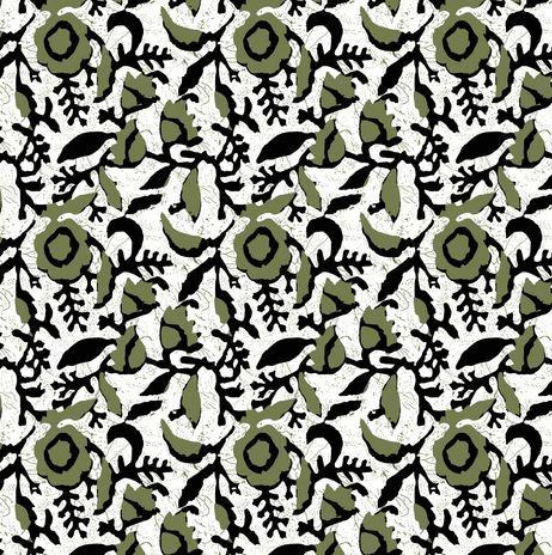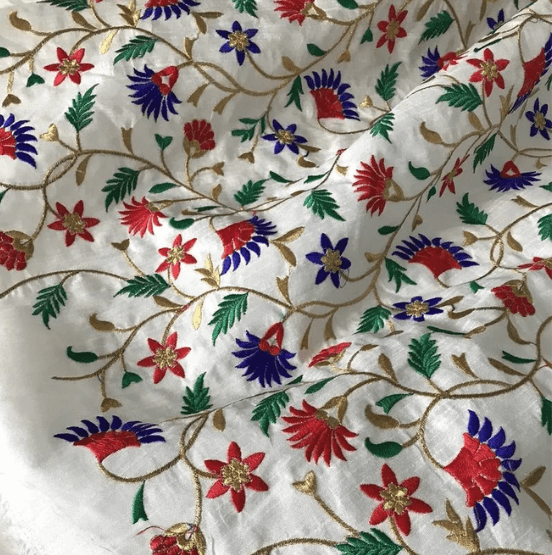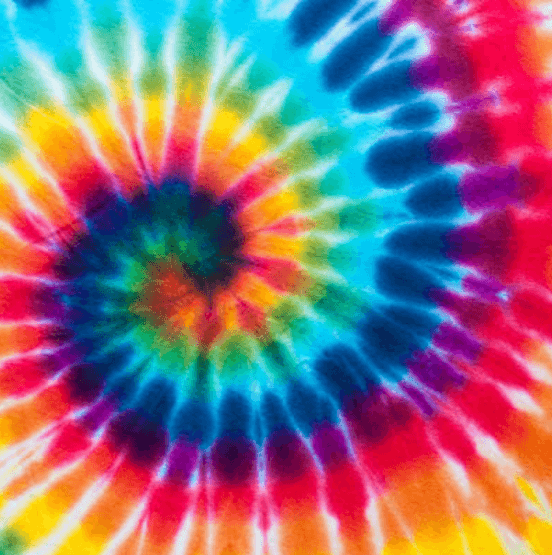1. What Is Private Label Clothing?
Private label clothing is a garment that is manufactured by one company and then sold under another company’s brand. Private label garments are usually made to the buyer’s specifications and can include the buyer’s branding and labels.
Private label clothing is often seen as a more affordable alternative to purchasing branded clothing, as it allows the buyer to avoid the high costs associated with marketing and advertising their own brand.
Private label clothing can be found in a variety of garments, including t-shirts, jeans, shirts, swimwear and even outerwear. Private label manufacturers usually have a wide range of fabrics and styles to choose from, which gives the buyer more flexibility when it comes to creating their own unique brand.
Beginning a clothing brand is no child’s play – it requires great effort and can be costly. Private labelling allows your customers to see you as professional and unique. If you are wholesale or considering starting, this video might help give some guidance.
2. Private Label vs. White Label: What’s the Difference?
When it comes to creating a private-label clothing line, there are two different approaches you can take. You can either go the private label route or the white label route. But what’s the difference between these two options?
Here’s a quick overview of private label and white label:
- A private label product is manufactured by a third-party company and sold under a retailer’s brand name.
- A white-label product is a generic product that is manufactured by one company and sold by another company under its own brand name.
So, what’s the difference between private labels and white labels?
Private Label vs. White Label: What’s the Difference?
|
| Private Label |
White Label |
| another company owns the brand |
you own the brand |
| products are usually more expensive |
products are usually cheaper |
| products are usually made to order |
products are usually mass-produced |
| gives you more control over the branding and packaging of your product |
usually stuck with whatever branding and packaging the manufacturer decides to use |
| requires a minimum order quantity (MOQ) |
usually doesn’t requires a minimum order quantity (MOQ) |
As you can see, there are a few key differences between private label and white label products. Ultimately, the decision of which route to take depends on your specific needs and goals. Make sure to do your research before making a decision to ensure you choose the best option for your business.
3. Types of Fabrics Used in Organic Clothing
There are a variety of organic fabrics available on the market, each with its own unique set of benefits. Here are some of the most popular types of fabrics used in organic clothing:
Cotton
Cotton is one of the most popular fabrics used in organic clothing. It is soft, durable, and breathes well, making it a comfortable choice for everyday wear.
Linen
Linen is another popular choice for organic clothing. It is made from flax plants and is known for its strength and durability. Linen is also a very breathable fabric, making it a good choice for warm weather wear.
Hemp
Hemp is a versatile fabric that can be used for a variety of clothing items. It is strong and durable, yet soft and comfortable to wear. Hemp is also a good choice for those with allergies, as it is hypoallergenic.
Wool
Wool is a natural fiber that is both warm and breathable. It is often used in winter clothing, as it can help to keep you warm without making you sweaty.
Silk
Silk is a luxurious fabric that is both soft and strong. It is often used in high-end clothing items, as it has a beautiful drape and can be very flattering to wear.
These are just a few of the many different types of fabrics that are used in organic clothing. With so many options to choose from, you can find the perfect fabric for any item of clothing.
4. Printing and/or Embroidery Options for Organic Clothing
Organic clothing is quickly gaining popularity for its many benefits, which include being more environmentally friendly and gentle on the skin. private label organic clothing manufacturers are often able to offer custom printing and embroidery services, which can help to create a unique and stylish look for your organic clothing line.
Here are some printing and embroidery options to consider for your organic clothing:
Screen Printing
Screen printing is a popular printing method for organic clothing, as it is a relatively simple and inexpensive process. This printing method involves creating a stencil of the design that you want to print and then using a screen to transfer the ink onto the fabric.
Screen printing is best suited for designs with limited colors, as each color requires a separate screen.
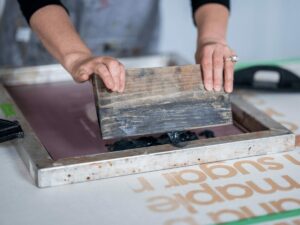
Heat Transfer Printing
Heat transfer printing is another popular printing method for organic clothing. This method involves using heat to transfer an inkjet print onto the fabric. Heat transfer prints are often used for designs that are too complex to screen print or for small quantities of garments.
One downside of heat transfer printing is that it can sometimes result in a slightly stiffer feel to the fabric.
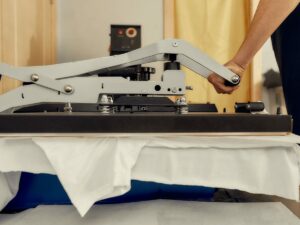
Embroidery
Embroidery is a popular choice for private label organic clothing manufacturers, as it can add a high-quality and stylish touch to any garment. Embroidery involves stitching a design onto the fabric using thread.
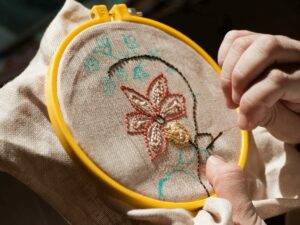
Digitizing
Digitizing is a process that is often used in conjunction with embroidery. Digitizing involves converting a design into a digital format that can be read by an embroidery machine.
Digitizing is often required for complex designs or for designs that include small details.
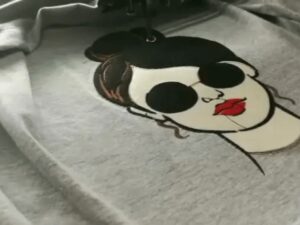
Private label organic clothing manufacturers can help you to choose the best printing or embroidery method for your organic clothing. They will also be able to advise you on the best way to care for your garments to ensure that the prints and/or embroidery last wash after wash.
5. Organic Clothing Certification: What Does It Mean?
Organic clothing certification is a process that private label organic clothing manufacturers use to ensure that their products meet certain standards.
Private label organic clothing manufacturers must meet strict standards in order to receive certification, which includes the use of certified organic cotton, dyes, and other materials.
This type of certification is important for private label organic clothing manufacturers to have, as it provides assurance to consumers that their products are of the highest quality and that they are made in an environmentally and socially responsible way.
Private label organic clothing manufacturers who are certified by a reputable organization such as the Global Organic Textile Standard (GOTS) can be trusted to provide consumers with clothing that is truly made from certified organic materials.
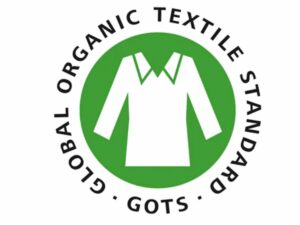
When private label organic clothing manufacturers receive certification, they are required to display the certification logo on their products. This logo serves as a symbol of quality and trust for consumers, and it shows that the private label organic clothing manufacturer is committed to providing products that meet the highest standards.
6. How To Start Your Own Private Label Organic Clothing Line
Organic private-label clothing is a great way to get started in the fashion industry. However, there are a few things you need to keep in mind when starting your own private-label organic clothing line. Here are some steps to follow:
Step#1 Do Your Research
The first step to starting any business is research. private label organic clothing line is no different. You’ll need to learn about the private label process, what type of clothing is popular, and which private label companies are the best to work with.
Step#2 Find A Manufacturer
Once you’ve done your research and know what you’re looking for, it’s time to find a private label manufacturer. There are many private label clothing manufacturers out there, so take your time and find one that’s a good fit for your needs.
Step#3 Create A Business Plan
Creating a business plan is an important step in starting any business. A private label organic clothing line is no different. Your business plan should include your goals, your target market, and your marketing strategy.
Step#4 Design Your Clothing
Now it’s time to design your private label organic clothing line. This is where you’ll get to be creative and come up with designs that you think will appeal to your target market.
Step#5 Market Your Clothing Line
Once you’ve designed your clothing line, it’s time to start marketing it. There are a number of ways to market your private-label organic clothing line. You can use social media, traditional advertising, or even word-of-mouth to get the word out about your new clothing line.
Step#6 Launch Your Clothing Line
After you’ve done all of the above steps, it’s finally time to launch your private-label organic clothing line. This is where all of your hard work will come together and you’ll finally be able to see your clothing line come to life.
A private label organic clothing line is a great way to get started in the fashion industry. By following the steps above, you’ll be on your way to starting a successful private-label organic clothing line.
7. Costs Associated When Starting Your Own Label
Organic private label clothing manufacturers can be a great way to get started in the fashion industry. However, there are some costs associated with starting your own label. Here is a list of some of the potential costs:
Manufacturing Costs
Private label organic clothing manufacturers will charge you for their services. These costs will vary depending on the manufacturer but can range from a few hundred dollars to a few thousand dollars per piece.
Design Costs
If you don’t have your own design team, you may need to hire someone to create your designs. Design costs can vary depending on the complexity of the design and the experience of the designer.
Shipping Costs
When you’re selling your own clothing line, you will need to pay for shipping costs. These costs will vary depending on the size and weight of your garments and where you are shipping them to.
Marketing and Advertising Costs
To promote your clothing line, you will need to invest in marketing and advertising. This can be a significant cost, depending on the size and scope of your marketing campaign.
Other Cost Considerations
In addition to the costs listed above, there are other costs to consider when starting your own clothing line. These include the cost of renting a showroom or office space, hiring staff, and other general business expenses.
As you can see, there are a number of costs associated with starting your own clothing line. However, if you plan carefully and choose the right private label organic clothing manufacturer, you can keep your costs down and make your clothing line a success.
8. 5 Buying Traps To Avoid Before You Launch Your Own Brand
Organic private label clothing manufacturers are out there, but be careful of the traps that can come with them. Here are four buying traps to avoid before you launch your own brand:
#1 Not Doing Enough Research
Not doing enough research is another trap that can lead to private label failures. When you’re starting a new business, it’s important to do your homework and understand the industry you’re entering. This means researching your competition, understanding industry trends, and knowing what consumers want.
If you don’t take the time to do your research, you’re more likely to make costly mistakes that could sink your business.
#2 Not Having a Plan
Not having a plan is another private label mistake that can lead to disaster. Before you launch your brand, you need to have a solid business plan in place. This plan should include your goals, strategies, and a timeline for launching and growing your business. If you don’t have a plan, it will be very difficult to make your private label a success.
#3 Not Knowing Your Costs
Not knowing your costs is another common private label mistake. Before you launch your brand, you need to have a good understanding of all the costs involved. This includes the cost of manufacturing, shipping, marketing, and more.
If you don’t know your costs, it will be very difficult to price your products correctly and make a profit.
#4 Not Having a Niche Market
Another common trap is not having a niche market. It’s important to know who your target market is and what they want. Don’t try to be everything to everyone – it won’t work. If you’re not sure who your target market is, take some time to do some research.
There are many online tools and resources that can help you narrow down your target market. Once you know who you’re targeting, you can start creating products and marketing messages that appeal to them.
#5 Over-Manufacturing/Ordering
Another biggest traps first-time private labelers fall into is over-manufacturing or ordering too much inventory. It’s easy to get excited about your new product and want to order a large quantity, but beware that this can lead to big financial losses if the product doesn’t sell.
These are just a few of the traps that can lead to private label failure. If you’re thinking about launching your own brand, make sure you do your research and avoid these mistakes. With a little planning and effort, you can launch a successful private-label clothing business.
9. 5 Steps To Find the Best Private Label Manufacturer for Your Brand
There are many private label manufacturers that you can work with to create your own branded clothing line. But how do you know which one is right for you and your brand? Here are 5 steps to finding the best private label manufacturer for your brand:
Step#1 Do Your Research
The first step is to do your research and figure out which private label manufacturers are out there and which ones would be a good fit for your brand. You can do this by searching online, reading industry publications, and talking to other entrepreneurs in the fashion industry.
Step#2 Consider Your Needs
Once you have a list of potential private label manufacturers, the next step is to consider your needs and what you are looking for in a partner. Some things to consider include:
- Minimum order quantities
- Production lead times
- Price points
- Quality control
- Customization options
Step#3 Request Quotes and Samples
Once you have a good understanding of your needs, the next step is to request quotes and samples from the private label manufacturers on your list. This will give you a better idea of their pricing and production capabilities.
Step#4 Compare and Contrast
After you have received quotes and samples from private label manufacturers, it’s time to compare and contrast their offerings. This will help you narrow down your list to the manufacturer that is the best fit for your brand.
Step#5 Make Your Decision
After you have done your research and compared and contrasted the private label manufacturers on your list, it’s time to make a decision. Choose the manufacturer that you feel best meets your needs and with whom you feel you can build a long-term relationship.
Finding the right private label manufacturer for your brand is an important decision. But if you take the time to do your research and figure out what you are looking for, you will be able to find a partner that is a great fit for your business.
If you’re looking for private label manufacturers, Hongyu Apparel is a great choice. We are a custom clothing manufacturer with years of experience in the fashion industry. We offer a wide variety of high-quality garments at competitive prices and can work with you to create a custom clothing line that meets your specific needs. Contact us today to learn more.
10. What To Look For When Sourcing a Private Label Manufacturer
Organic private label clothing manufacturers are not all created equal. There are a few key factors that you should look for when sourcing a private label manufacturer for your organic clothing line these include:
Experience
Look for a private label manufacturer with plenty of experience in working with organic fabrics and materials. They should also have a good understanding of the manufacturing process and be able to advise you on the best way to bring your vision to life.
Certifications
Make sure the private label manufacturer you choose is certified by a reputable organization such as the Global Organic Textile Standard (GOTS). This will ensure that they are using organic materials and that their manufacturing process meets strict environmental and social standards.
Reputation
Look for private label manufacturers that have a good reputation in the industry. Ask other organic clothing brands who they use and why they are happy with their service. You can also read online reviews to get an idea of what others think of the manufacturer you are considering.
Flexibility
Choose a private label manufacturer that is flexible and able to accommodate your specific needs. They should be able to work with you to create custom designs and offer a range of different manufacturing options such as made-to-order or small batch production.
Competitive Pricing
Choose a private label manufacturer that offers competitive pricing without compromising on quality or service. There are a number of private label manufacturers out there, so be sure to shop around and get quotes from a few different companies before making your final decision.
These are just a few of the things you should look for when sourcing a private label manufacturer for your organic clothing line. By taking the time to find a manufacturer that meets your needs, you can be sure that your clothing will be made to the highest standards and that you will be happy with the final product.
If you’re looking for private-label organic clothing manufacturers with experience, reputation, and competitive pricing, contact us at Hongyu Apparel. We would be happy to discuss your specific needs and see how we can help you create the perfect clothing for your brand.
11. Conclusion
So, there you have it. Everything you need to know about private label organic clothing manufacturers and how to get started with your own brand. If you’re feeling overwhelmed or have any questions, don’t hesitate to contact us at Hongyu Apparel.
We would be more than happy to guide you through the process of starting your own sustainable fashion line.

